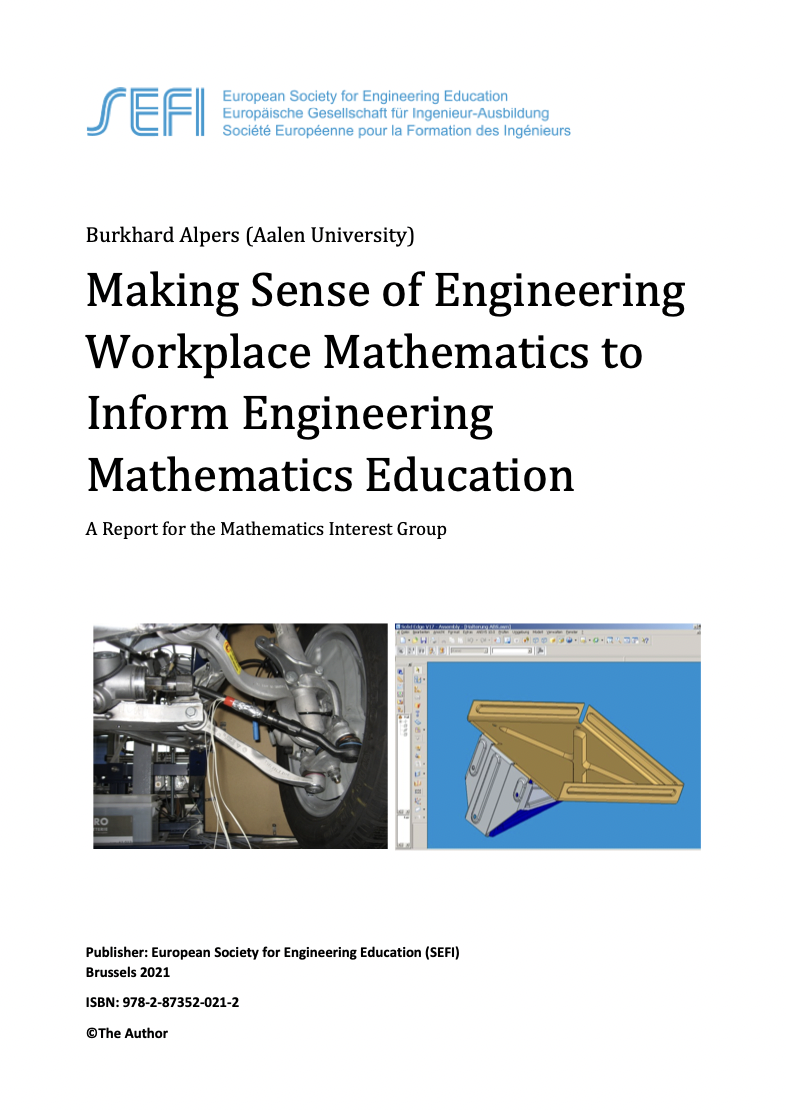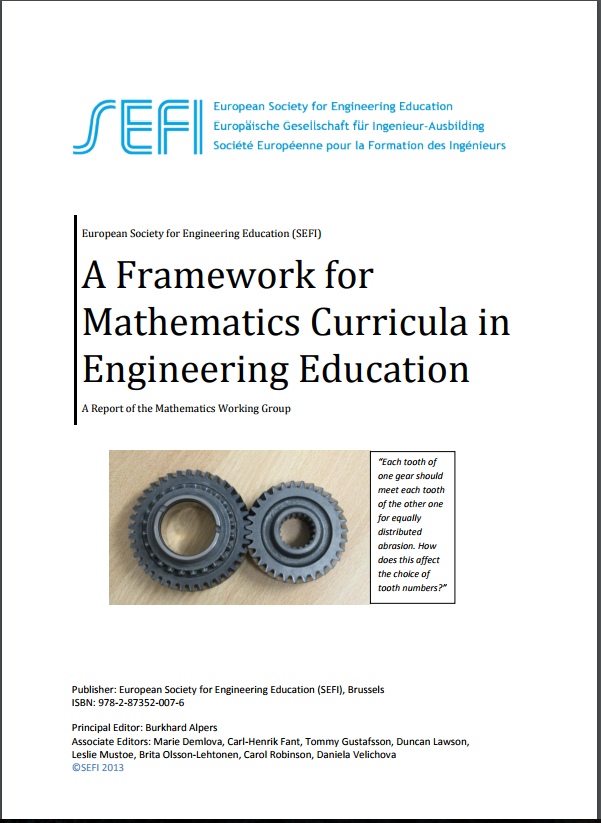
MAKING SENSE OF ENGINEERING WORKPLACE MATHEMATICS TO INFORM ENGINEERING MATHEMATICS EDUCATION
A Report for the SEFI Mathematics Interest Group
Burkhard Alpers (Aalen University)
In its fundamental curriculum document: “A Framework for Mathematics Curricula in Engineering Education”, SEFI’s Mathematics Interest Group uses the concept of “mathematical competence” to identify the goals of mathematics education in engineering study courses. Mathematical competence comprises the ability to understand and use mathematical concepts and procedures in relevant contexts and situations. The latter include mathematics-intensive application subjects like engineering mechanics or fundamentals of electronics within the study course but also the usage of mathematics in later work practice. Whereas information on application subjects can be gained within the university framework, it is much harder to investigate real workplaces. Most of the available studies on mathematics at workplaces are concerned with professions where an academic education is not required. There are not so many articles dealing with mathematics at engineering workplaces because it is not easy to really understand the work procedures, tasks and problems as an outsider. Moreover, the relevant publications are spread over different journals, books, and dissertations. This report is intended to provide the reader with an overview of available results from which it is easy to go deeper into single studies. It is hoped that it will inspire further investigations in a very under-researched, yet important area.

MATHEMATICS AS A SERVICE SUBJECT AT THE TERTIARY LEVEL
A State of the Art Report for the SEFI Mathematics Interest Group
Burkhard Alpers (Aalen University)
Since after the issuing of the curriculum document “A Framework for Mathematics Curricula in Engineering Education” in 2013, many new and deeper results have appeared in many conference proceedings and journal papers it seems adequate to provide a structured summary such that the community gets a quick, structured overview with pointers for further reading. This overview takes a broader perspective in that it tries to capture service mathematics in general although it is fair to state that mathematics in engineering education forms still the centre. It comprises on the one hand information on the historical development of the field and its major players, and on the other hand a brief account of important themes and corresponding results. There is only occasionally an overlap with the curriculum document such that it is recommended to read the latter first and then the present survey for being informed of the most recent results. The current report is certainly euro-centric but it is hoped that it will inspire reports from other regions of the world.

The main document for providing orientation to the community of mathematics lecturers in engineering education is the Mathematics Special Interest Group’s curriculum document which serves to clarify the main objectives of mathematics education. The 3rd edition of this document appeared in September 2013. It is called A framework for Mathematics Curricula in Engineering Education. This executive summary provides a one-page overview of the document.
This edition is based on the concept of mathematical competence which has been developed as a part of the Danish KOM project which was coordinated by Mogens Niss. The main intentions of the document are described in this paper presented at the SEFI Annual Conference in Leuven (2013). An actual curriculum for a specific practice-oriented study course in mechanical engineering based on the framework document can be downloaded here.
In order to see the development of the curriculum document over time, these are the previous two versions: